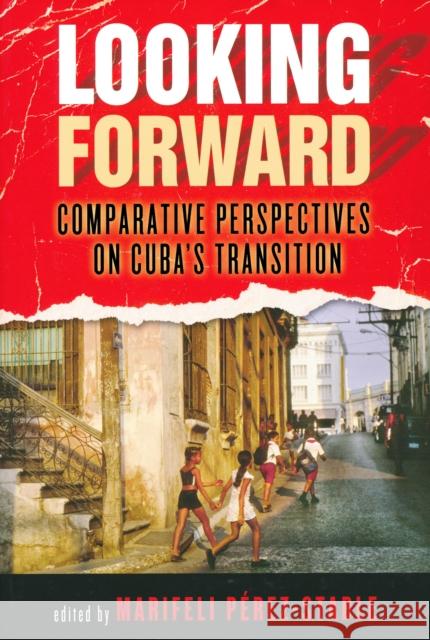Looking Forward: Comparative Perspectives on Cuba's Transition » książka
Looking Forward: Comparative Perspectives on Cuba's Transition
ISBN-13: 9780268038915 / Angielski / Miękka / 2007 / 354 str.
Looking Forward: Comparative Perspectives on Cuba's Transition
ISBN-13: 9780268038915 / Angielski / Miękka / 2007 / 354 str.
(netto: 106,58 VAT: 5%)
Najniższa cena z 30 dni: 111,68
ok. 22 dni roboczych.
Darmowa dostawa!
"In Looking Forward," Marifeli Perez-Stable and her colleagues imagine Cuba's future after the poof moment Jorge I. Dominguez's vivid phrase when the current regime will no longer exist. Written in an accessible style that will appeal to all interested readers, this volume does not try to predict how and when the Castro regime will end, but instead considers the possible consequences of change. Each chapter prepared by an expert in the field takes up a basic issue: politics, the military, the legal system, civil society, gender, race, economic transition strategies, social policy and social welfare, corruption, the diaspora, memory, ideology and culture, and U.S.-Cuba relations.The author of each chapter considers three questions: How have other new democracies handled the basic issue in question? How might Cuba s unique conditions affect this area in transition? What are the likely outcomes and alternatives for a Cuba in transition? Designed with students, policy-makers, and journalists in mind, this lively and accessible volume is an essential resource. This is the most important book about Cuba to appear in a generation. A group of not-your-usual-emigres and other experts who have taught us most of what we already know about contemporary Cuba have performed an extraordinary service to the policy and academic communities and their "patria "in imagining Cuba's future after Fidel. Building on their diverse expertise in politics, economic reform, civil-military relations, social policy, race, gender, and cultural relations, and drawing from models around the world of regime transitions gone wrong and right, their compelling essays project Cuba's recent past onto its immediate future and lay a blueprint for a free, democratic, and just society. There is quite simply no book like it. Frances Hagopian, Michael Grace II Associate Professor of Latin American Studies, Kellogg Institute for International Studies, University of Notre Dame"Fidel Castro's illness and the transfer of power to his brother Raul in July 2006 have opened speculation about Cuba's future as never before. In this extraordinary collection of essays, noted scholars of Cuba's politics, economy, society, diaspora, and international relations explore multiple scenarios regarding the island s future, based on a comparative understanding of outcomes in Latin American and Eastern European transitions. The result is an influential book that will shape our collective understanding of Cuba for many years to come." Dr. Cynthia J. Arnson, Director, Latin American Program, Woodrow Wilson International Center for Scholars There are few if any serious, balanced, and comprehensive appraisals of the various futures open to Cuba upon the death of Fidel Castro. For those interested in these matters, this book is a treasure trove of data, analysis, and innovative thinking about Cuba s precarious future. Its originality lies first in the fact that each chapter offers detailed descriptions of processes and lessons from other Latin American and socialist contexts that shed light on what is likely to happen in Cuba. At the same time, these chapters manage to give credit to the unique and exceptional nature of Cuban history, nationalism, and socialism so that lessons are not applied blindly with no eye to their applicability in the Cuban context. Ted Henken, Baruch College When Fidel Castro is gone, Cuba will change. Whether change is peaceful or violent or for good or ill willl depend on whether we take the lessons offered inPerez-Stables collection of essays fromthe very best experts on Cuba.If there is to be ahappy ending, then "Looking Forward "offers the best map yet on how to get there. Ambassador (retired) Vicki J. Huddleston (former Principal Officer of the United States Interests Section in Havana, Cuba 1999 2002) "











